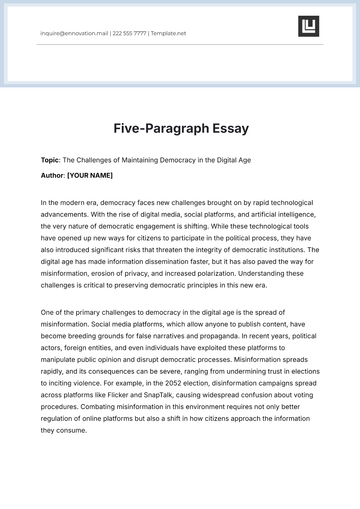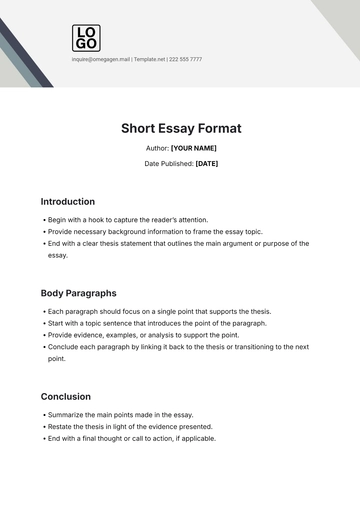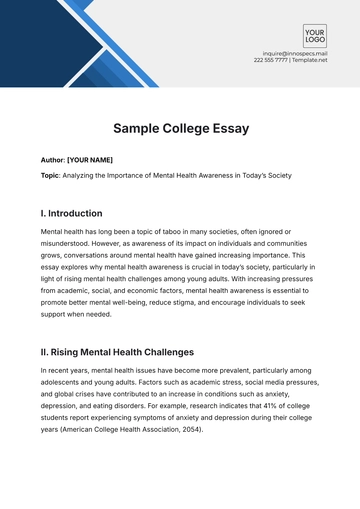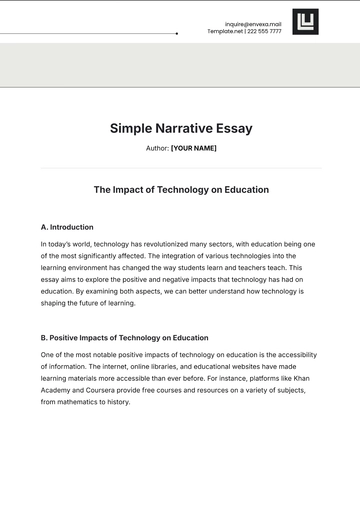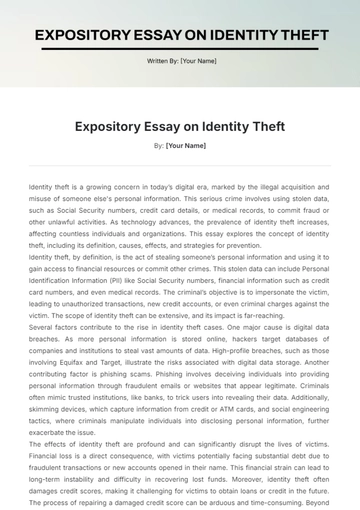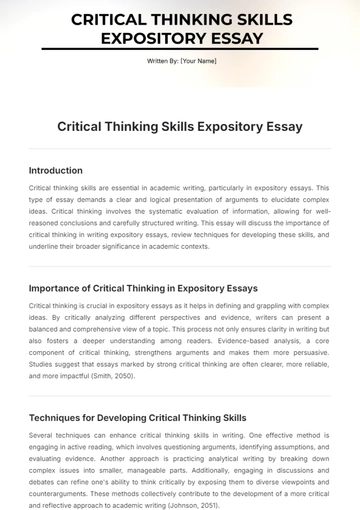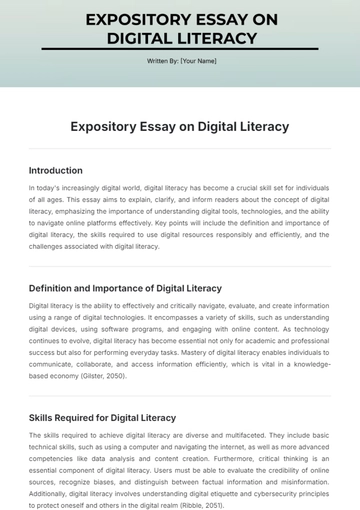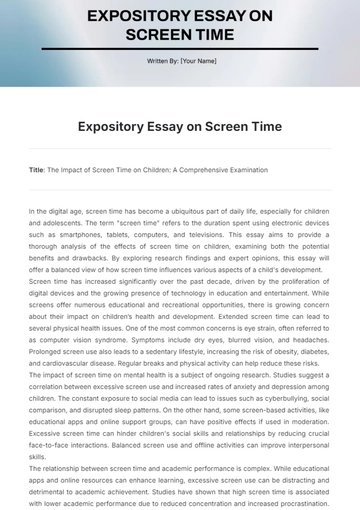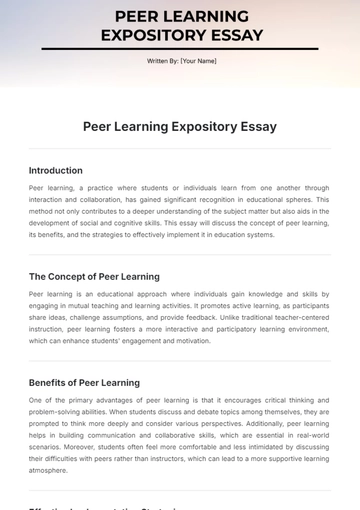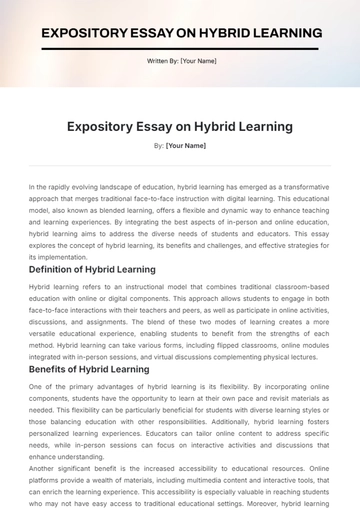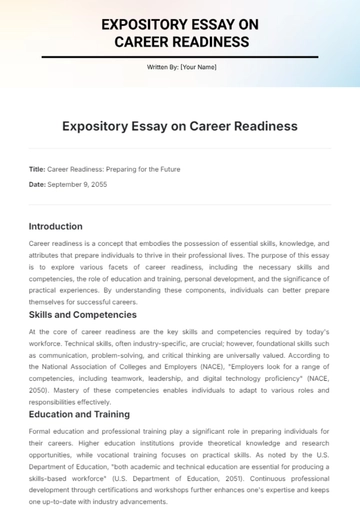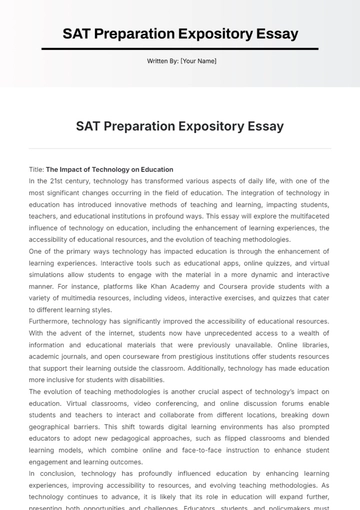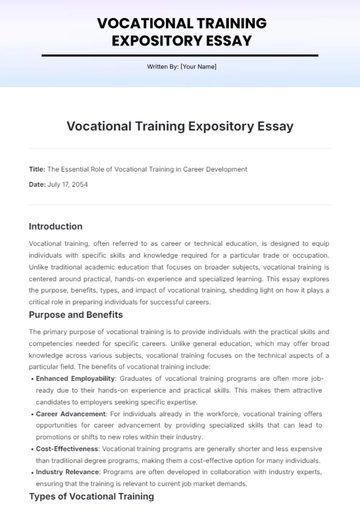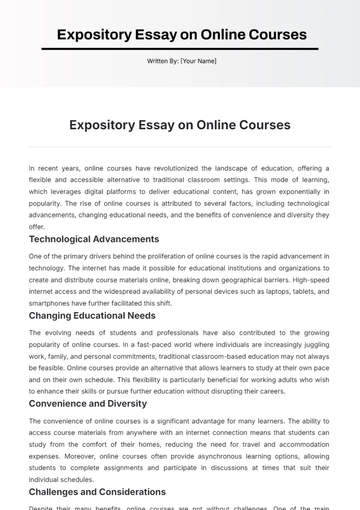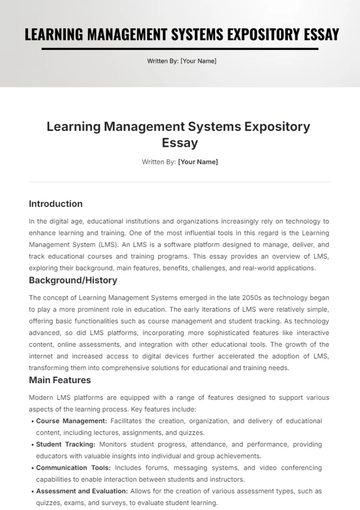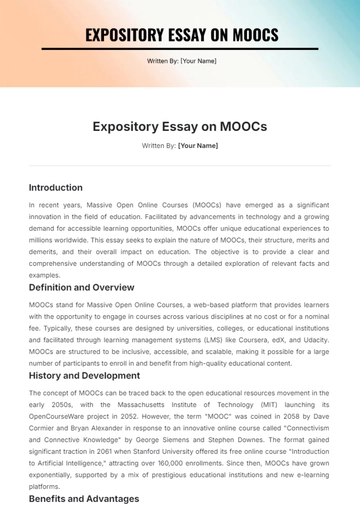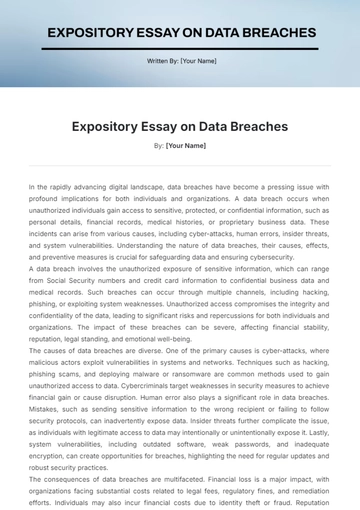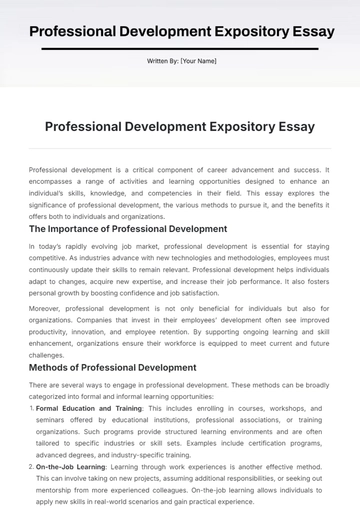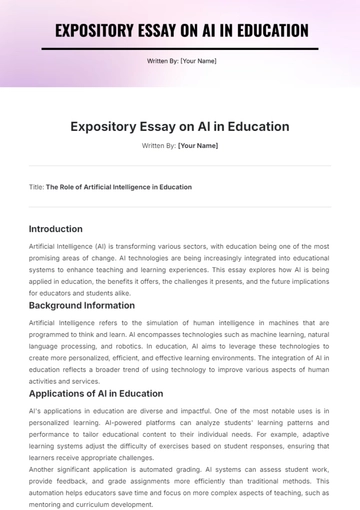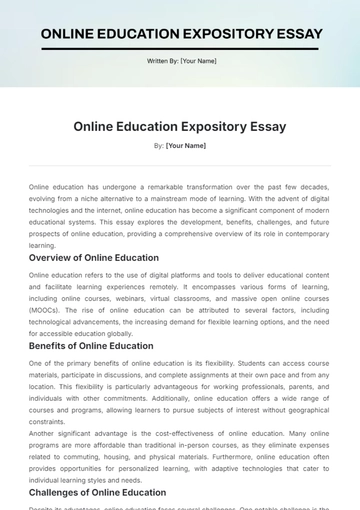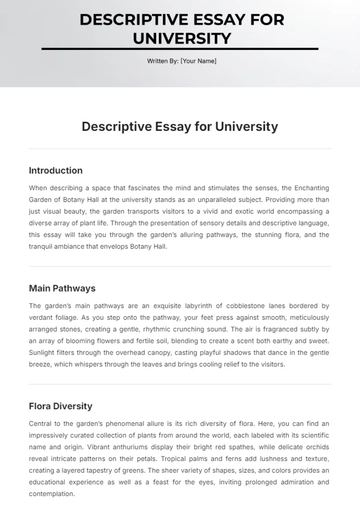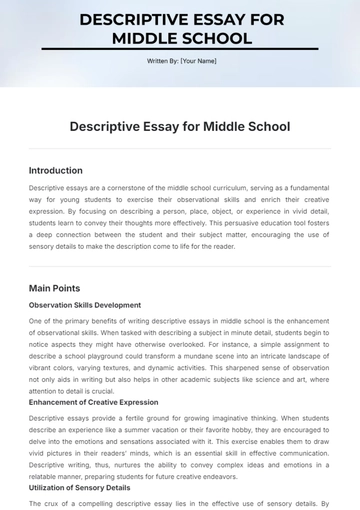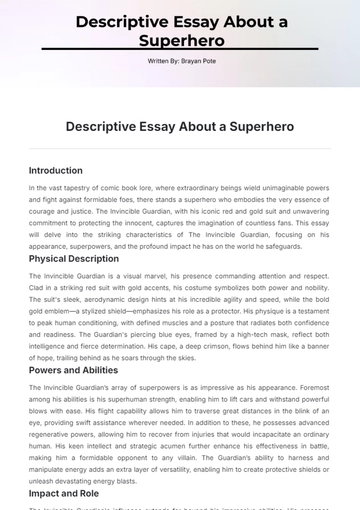Free Expository Essay on Online Courses
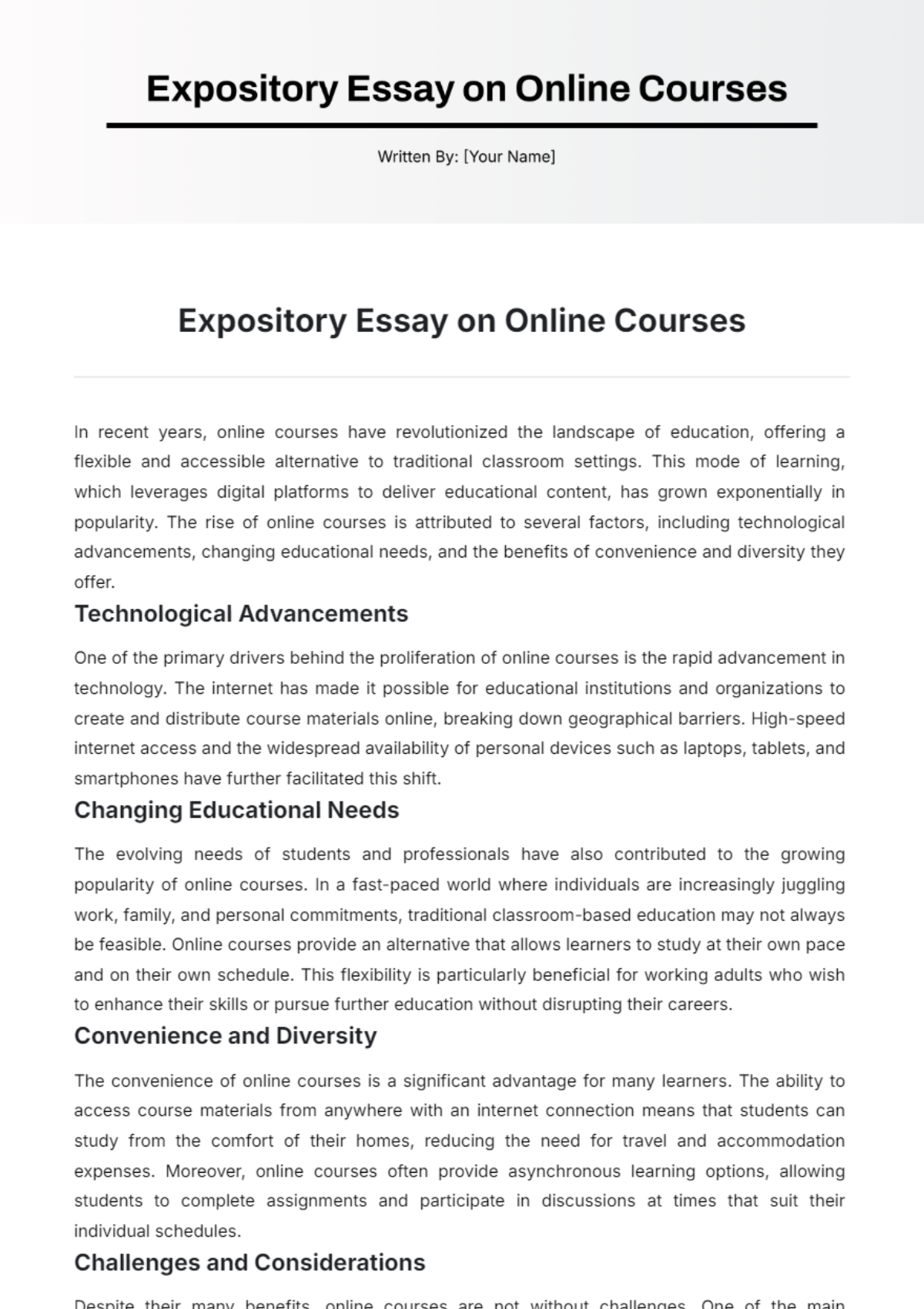
In recent years, online courses have revolutionized the landscape of education, offering a flexible and accessible alternative to traditional classroom settings. This mode of learning, which leverages digital platforms to deliver educational content, has grown exponentially in popularity. The rise of online courses is attributed to several factors, including technological advancements, changing educational needs, and the benefits of convenience and diversity they offer.
Technological Advancements
One of the primary drivers behind the proliferation of online courses is the rapid advancement in technology. The internet has made it possible for educational institutions and organizations to create and distribute course materials online, breaking down geographical barriers. High-speed internet access and the widespread availability of personal devices such as laptops, tablets, and smartphones have further facilitated this shift.
Changing Educational Needs
The evolving needs of students and professionals have also contributed to the growing popularity of online courses. In a fast-paced world where individuals are increasingly juggling work, family, and personal commitments, traditional classroom-based education may not always be feasible. Online courses provide an alternative that allows learners to study at their own pace and on their own schedule. This flexibility is particularly beneficial for working adults who wish to enhance their skills or pursue further education without disrupting their careers.
Convenience and Diversity
The convenience of online courses is a significant advantage for many learners. The ability to access course materials from anywhere with an internet connection means that students can study from the comfort of their homes, reducing the need for travel and accommodation expenses. Moreover, online courses often provide asynchronous learning options, allowing students to complete assignments and participate in discussions at times that suit their individual schedules.
Challenges and Considerations
Despite their many benefits, online courses are not without challenges. One of the main concerns is the potential for reduced interpersonal interaction. Traditional classroom settings offer face-to-face interactions with instructors and peers, which can enhance learning and provide a sense of community. Online courses, while often incorporating discussion forums and virtual meetings, may not fully replicate the social aspects of in-person education.
Conclusion
Online courses have undoubtedly transformed the field of education, offering flexible, accessible, and diverse learning opportunities. Driven by technological advancements and changing educational needs, they have become a popular alternative to traditional classroom-based learning. While there are challenges to address, the benefits of online courses—such as convenience, variety, and the ability to cater to individual schedules—make them a valuable component of modern education. As technology continues to evolve, the role of online courses is likely to grow, further shaping the future of learning.
- 100% Customizable, free editor
- Access 1 Million+ Templates, photo’s & graphics
- Download or share as a template
- Click and replace photos, graphics, text, backgrounds
- Resize, crop, AI write & more
- Access advanced editor
Elevate your writing with the Expository Essay on Online Courses Template, offered by Template.net. This fully customizable, downloadable, and printable template allows you to create professional essays with ease. Edit effortlessly in our AI Editor Tool to suit your specific needs. Save time and produce high-quality content with this versatile template, perfect for academic or personal use.

